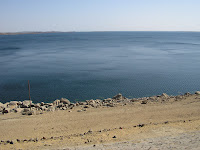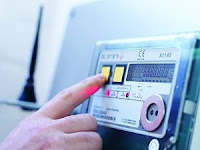World Water Week 2011: The Business of Water Management Requires
Collaboration

World Water Week is the annual meeting place for the planet’s most urgent water-related issues. Organized by Stockholm International Water Institute, it brings together the world’s experts, practitioners, decision makers and leaders to exchange ideas, foster new thinking and develop solutions. World Water Week opened in Stockholm on Monday August 22nd with calls for better urban water management to ensure food and water security. Around 2,500 experts from some 130 countries are attending the 21st edition of World Water Week in Stockholm. They are working on preparations for the United Nation’s conference on sustainable development set to be held in Rio de Janeiro in June 2012. The group expects to publish a declaration at the end of this week (August 26). Despite the U.N.’s adoption of a resolution recognizing access to clean water and sanitation as a human right, 1.6 billion people continue to live in areas affected by drought, and that the number could easily rise to tw...





